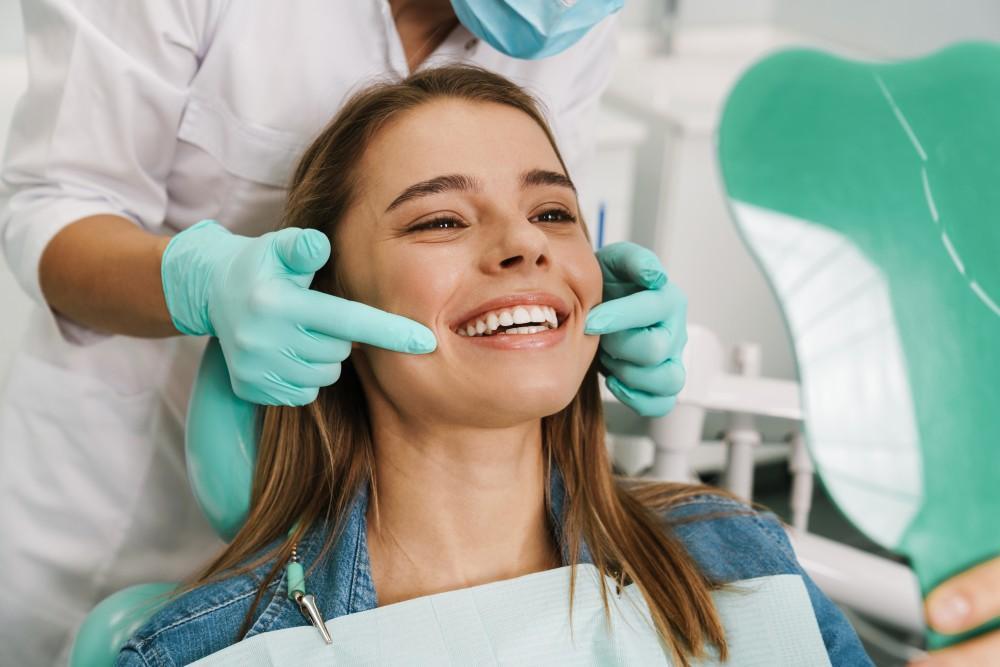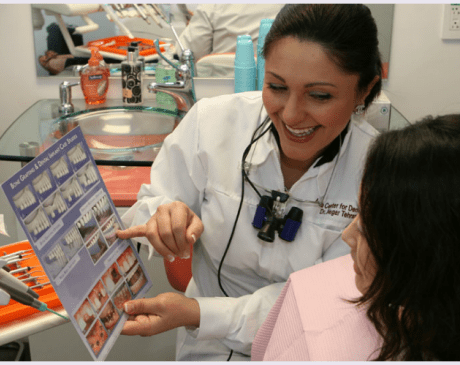You understand the power of white teeth, whether it’s fueling a great smile or you want to exude great health and vitality. Unfortunately, life has had other plans, and your teeth are falling short of white, leaning more toward a dull yellow or brown.
You’re not alone, which explains why the teeth whitening industry in the United States has reached barely $2 billion and continues to grow.
At McLean Aura Dentistry, our team understands the importance of white teeth, and we offer the products and services our clients need to smile confidently. If you’re wondering which approach is best for whitening and brightening your teeth, Dr. Negar Tehrani focuses on two great options in this month’s blog post — Zoom® teeth whitening and dental veneers.
Here’s a look at some points to consider when choosing between the two.
Whitening and veneers in brief
Before we get into what each teeth-whitening approach excels at, let’s look at how they work.
Our Zoom teeth whitening is a technique in which we use professional-grade bleaching agents and a special light to whiten your teeth by several shades in just one visit. We also offer take-home kits that accomplish the same objective more gradually.
Dental veneers are an entirely different approach in which we place wafer-thin porcelain shells over the fronts of the teeth in your smile zone. These porcelain shells mimic the natural coloring of tooth enamel, except they’re much brighter than your existing teeth.
Not all tooth discoloration is the same
In most cases, teeth become less white because of two forces — yellowing and staining. The yellowing often occurs as a natural part of aging; your enamel begins to break down, which allows more of the brown dentin inside your teeth to show through.
If this is what’s robbing your teeth of whiteness, our teeth whitening is a simple and effective solution.
If you want to tackle stains in your teeth, it depends upon whether they’re intrinsic or extrinsic. If certain foods or habits, such as coffee and/or smoking, have led to exterior staining in your teeth, we can perform a good cleaning and then whiten your teeth with Zoom.
If, however, your staining comes from the inside, such as a dead tooth, staining due to fluorosis, or tetracycline staining, tooth whitening can’t tackle these issues. Intrinsic staining such as these examples requires the cover-up approach that veneers offer.
Beyond whitening
Our teeth whitening service can dramatically brighten your teeth. However, dental veneers not only whiten your teeth, but they can also address a number of other issues that detract from your smile, such as:
- Gaps in your teeth
- Chips or cracks
- Misshapen teeth
- Teeth that appear too short
- Uneven teeth
Dental veneers are incredibly versatile as we can cover up a wide range of small flaws to give you white, bright teeth that appear to line up perfectly.
Other points to consider
We want to touch on some other points you should consider when deciding between teeth whitening and dental veneers.
First, teeth whitening is far more economical than dental veneers. Whether you come in for teeth whitening or use our take-home kits, the costs are far lower than dental veneers.
A second point to consider is that dental veneers are a more permanent option. To make room for your veneers, we remove some enamel from your teeth, which means you will always need to wear veneers. That said, your veneers can last for years, even decades if you take good care of them.
Lastly, teeth whitening can be uncomfortable if you have extra sensitive teeth or gums. With dental veneers, you won’t be dealing with the bleaching agent, and you may also find that your teeth become less sensitive with the added porcelain.
If you want to come in and discuss which road is best for whitening your teeth, please contact our office in McLean, Virginia, at 703-429-0770.




